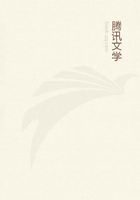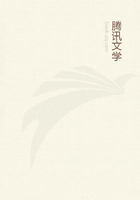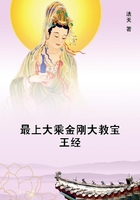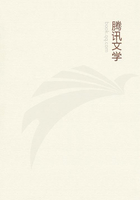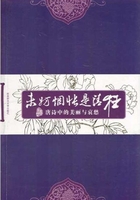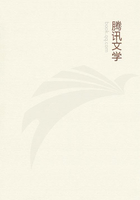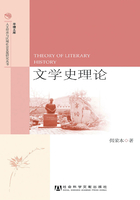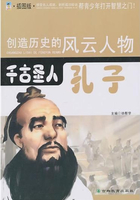With regard to especial claims, I think it just deserving your attention, that if general claims are once admitted, it opens the door to great laxity in giving them. Think of the case of a very rich man, who aided SOLELYwith his money, but to a grand extent--or such an inconceivable prodigy as a minister of the Crown who really cared for science. Would you give such men medals? Perhaps medals could not be better applied than EXCLUSIVELY to such men. I confess at present I incline to stick to especial claims which can be put down on paper...
I am much confounded by your showing that there are not obvious instances of my (or rather Waterhouse's) law of abnormal developments being highly variable. I have been thinking more of your remark about the difficulty of judging or comparing variability in plants from the great general variability of parts. I should look at the law as more completely smashed if you would turn in your mind for a little while for cases of great variability of an organ, and tell me whether it is moderately easy to pick out such cases; For IF THEY CAN BE PICKED OUT, and, notwithstanding, do not coincide with great or abnormal development, it would be a complete smasher. It is only beginning in your mind at the variability end of the question instead of at the abnormality end. PERHAPS cases in which a part is highly variable in all the species of a group should be excluded, as possibly being something distinct, and connected with the perplexing subject of polymorphism. Will you perfect your assistance by further considering, for a little, the subject this way?
I have been so much interested this morning in comparing all my notes on the variation of the several species of the genus Equus and the results of their crossing. Taking most strictly analogous facts amongst the blessed pigeons for my guide, I believe I can plainly see the colouring and marks of the grandfather of the Ass, Horse, Quagga, Hemionus and Zebra, some millions of generations ago! Should not I [have] sneer[ed] at any one who made such a remark to me a few years ago; but my evidence seems to me so good that I shall publish my vision at the end of my little discussion on this genus.
I have of late inundated you with my notions, you best of friends and philosophers.
Adios, C. DARWIN.
CHARLES DARWIN TO J.D. HOOKER.
Moor Park, Farnham, June 25th [1857].
My dear Hooker, This requires no answer, but I will ask you whenever we meet. Look at enclosed seedling gorses, especially one with the top knocked off. The leaves succeeding the cotyledons being almost clover-like in shape, seems to me feebly analogous to embryonic resemblances in young animals, as, for instance, the young lion being striped. I shall ask you whether this is so...(See 'Power of Movement in Plants,' page 414.)Dr. Lane (The physician at Moor Park.) and wife, and mother-in-law, Lady Drysdale, are some of the nicest people I ever met.
I return home on the 30th. Good-bye, my dear Hooker.
Ever yours, C. DARWIN.
[Here follows a group of letters, of various dates, bearing on the question of large genera varying.]
CHARLES DARWIN TO J.D. HOOKER.
March 11th [1858].
I was led to all this work by a remark of Fries, that the species in large genera were more closely related to each other than in small genera; and if this were so, seeing that varieties and species are so hardly distinguishable, I concluded that I should find more varieties in the large genera than in the small...Some day I hope you will read my short discussion on the whole subject. You have done me infinite service, whatever opinion I come to, in drawing my attention to at least the possibility or the probability of botanists recording more varieties in the large than in the small genera. It will be hard work for me to be candid in coming to my conclusion.
Ever yours, most truly, C. DARWIN.
P.S.--I shall be several weeks at my present job. The work has been turning out badly for me this morning, and I am sick at heart; and, oh! how I do hate species and varieties.
CHARLES DARWIN TO J.D. HOOKER.
July 14th [1857?].
...I write now to supplicate most earnestly a favour, viz., the loan of "Boreau, Flore du centre de la France", either 1st or 2nd edition, last best; also "Flora Ratisbonensis," by Dr. Furnrohr, in 'Naturhist.
Topographie von Regensburg, 1839.' If you can POSSIBLY spare them, will you send them at once to the enclosed address. If you have not them, will you send one line by return of post: as I must try whether Kippist (The late Mr. Kippist was at this time in charge of the Linnean Society's Library.) can anyhow find them, which I fear will be nearly impossible in the Linnean Library, in which I know they are.
I have been making some calculations about varieties, etc., and talking yesterday with Lubbock, he has pointed out to me the grossest blunder which I have made in principle, and which entails two or three weeks' lost work;and I am at a dead-lock till I have these books to go over again, and see what the result of calculation on the right principle is. I am the most miserable, bemuddled, stupid dog in all England, and am ready to cry with vexation at my blindness and presumption.
Ever yours, most miserably, C. DARWIN.
CHARLES DARWIN TO JOHN LUBBOCK.
Down, [July] 14th [1857].
My dear Lubbock, You have done me the greatest possible service in helping me to clarify my brains. If I am as muzzy on all subjects as I am on proportion and chance,--what a book I shall produce!
I have divided the New Zealand Flora as you suggested, there are 329species in genera of 4 and upwards, and 323 in genera of 3 and less.
The 339 species have 51 species presenting one or more varieties. The 323species have only 37. Proportionately (339 : 323 :: 51 : 48.5) they ought to have had 48 1/2 species presenting vars. So that the case goes as Iwant it, but not strong enough, without it be general, for me to have much confidence in. I am quite convinced yours is the right way; I had thought of it, but should never have done it had it not been for my most fortunate conversation with you.

